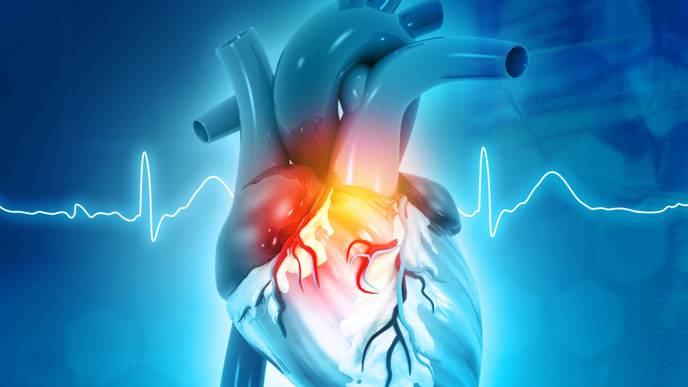National Cardiogenic Shock Initiative Publishes Final Results

01/09/2024
December 18, 2023—Henry Ford Health in Detroit, Michigan, recently announced the publication of final results from the National Cardiogenic Shock Initiative (NCSI), which was led by a cardiology research team based at Henry Ford Hospital.
The press release reported that the large national heart attack study showed that patients with cardiogenic shock survived at a significantly higher rate when treated with a protocol developed by cardiologists at Henry Ford Health, in collaboration with 80 hospitals nationwide.
The study’s Principal Investigators are William O’Neill, MD, and Mir Babar Basir, DO. Dr. O’Neill is Medical Director Emeritus of Henry Ford’s Center for Structural Heart Disease, and Dr. Basir is Director of Acute Mechanical Circulatory Support at Henry Ford Health System.
The findings were published by Dr. Basir et al online in Journal of the American Heart Association.
“The NCSI is the largest prospective study of therapy for severe heart attack cardiogenic shock done in the United States in the past 2 decades,” commented Dr. O’Neill in the Henry Ford Health press release. “The impressive results from our study in the United States have also prompted the use of our protocol in Japan where they are experiencing similar great outcomes.”
Dr. Basir added, “The study results show remarkable survival, the highest we’ve seen in any study so far. The results show that we now have therapy that can save lives and improve outcomes for people who’ve had severe heart attacks, and we haven’t had results like these in 20 years. The protocol has already saved many lives and will continue to do so as more hospitals adopt its principles.”
As summarized in the Henry Ford Health press release, the results demonstrated a survival rate of 71% in patients whose heart attack was complicated by cardiogenic shock who were treated with the protocol. The treatment algorithm is available online at henryford.com/cardiogenicshock.
NCSI participating hospitals agreed to treat patients who presented with acute myocardial infarction and cardiogenic shock using the protocol, which involved rapid initiation of mechanical circulatory support with an FDA-approved Impella 2.5 or Impella CP heart pump (Abiomed, part of Johnson & Johnson MedTech), along with right heart catheterization to assess status of right and left ventricular heart function. Doctors then treat the cause of the heart attack by either inserting a stent, removing a clot, or taking other necessary action.
The NCSI study involved cardiologists at community hospitals, where many patients with heart attacks first present, and at large academic centers.
Of the > 1,100 patients screened, 406 patients were enrolled in the study from hospitals across 29 states between July 2016 and December 2020. The study also isolated predictive markers that indicate a patient’s condition.
The press release noted that Dr. O’Neill will continue to lead research in the next NCSI phase in the RECOVER IV randomized clinical trial, which recently commenced enrollment.
“Implementing this protocol has truly been a joint effort with hospitals that have experienced the devastating burden of cardiogenic shock,” commented NCSI investigator Sarah Gorgis, MD, in the press release. “Our work has just begun, but this protocol gives us hope since we have seen firsthand the impact it can make on survival.” Dr. Gorgis is a cardiologist at Henry Ford Health.
Herb Aronow, MD, Medical Director of Heart & Vascular Services at Henry Ford Health, added, “The NCSI initiative was critically important. It changed how we approach the management of patients with cardiogenic shock, and with those changes, we witnessed improvements in survival for the first time in decades.”
Finally, Henry Kim, MD, Division Head of Cardiology at Henry Ford Health, stated, “Bringing together 80 different sites to investigate an innovative treatment protocol for acute myocardial infarction complicated by cardiogenic shock is an incredible accomplishment by our NCSI team and heralds highly promising new approaches to improving outcomes in this challenging patient population.”

Facebook Comments